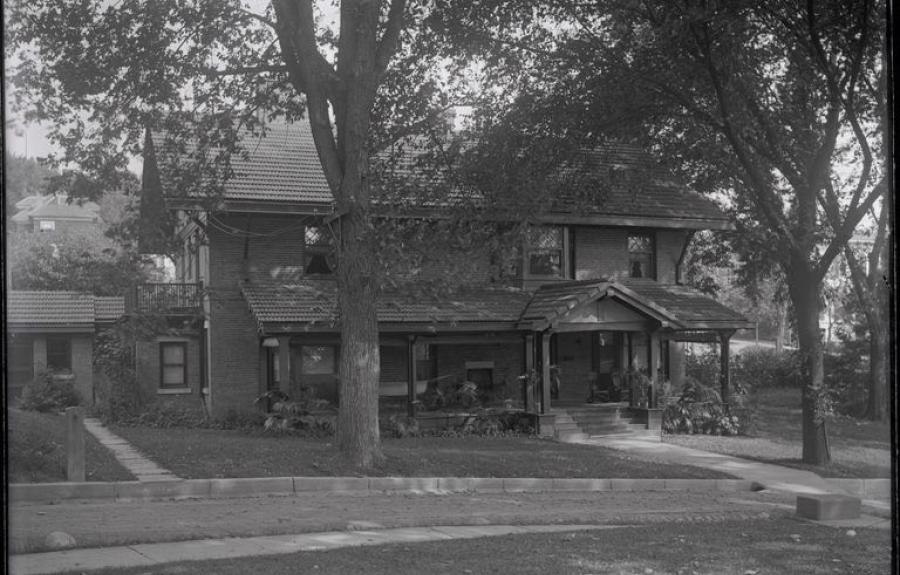Drawing on the vast interdisciplinary body of work left by Liberty Hyde Bailey, the visionary founding Dean of the New York State College of Agriculture at Cornell University, this collective organizing and visioning project seeks to establish a Liberty Hyde Bailey Center in Bailey’s former home and herbarium building in Ithaca, NY. Ideally situated halfway down the hill between Cornell’s campus and downtown Ithaca, the Bailey Center will be a gathering place for innovative work across the borderlines of the civic and the scholarly—a human space to come together on human terms. It will also be a center from which will extend resources and programming, developed alongside and made available to people in communities spread across the state and drawing on critical partnerships with Cornell University, Cornell Cooperative Extension, the Ashokan Center, and many other organizations, both rural and urban. The Bailey Center will operationalize and make permanent elements of the rural humanities work begun by Cornell’s Mellon-funded initiative, while collaborating across disciplinary lines with scholars and community leaders from the arts and humanities, the natural and biological sciences, the social sciences, and engineering and law. It will function as a participatory, publicly engaged research and education center, a significant art-making and publishing effort, and a new model for public engagement in the arts and humanities.
After several years of organizing around this project, in the early summer of 2025, we will host a retreat that will engage scholars, educators, elected officials, and community leaders representing diverse backgrounds and interests from across and beyond New York, upstate and downstate, in developing, discussing, and refining a vision and set of organizing principles for The Liberty Hyde Bailey Center. The retreat will feature a dialogue with state legislators, community leaders, and several key stakeholders on issues of strong relevance to upstate New York at the intersections of climate and democracy. Using methods from humanities and arts fields, it will serve as an example of the work the Bailey Center proposes to do. From this event will emerge a collectively developed and owned vision, a clear articulation of the ends such a center would pursue, and the means for pursuing them.
Through the establishment of the Liberty Hyde Bailey Center, we propose to do much more than simply bring Bailey’s forward-looking vision to bear on the equally interlinked contemporary crises of climate change and democratic fracture. We propose to use the Center as a platform for generating a new vision for the 21st century, co-created by rural, urban, and suburban leaders across and beyond New York State, working closely with faculty, staff, and students from Cornell University while coordinating with national partners to catalyze countless and diverse similar efforts across the country, each responsive to its unique context. This work will not take place in hotel ballrooms among highly educated academics all speaking the same language. It will take place in human spaces, where people can be human. It will take place in the village library, in the recently renovated community theater, in the new organic distillery-turned-community-art-space. It will leverage the resources of the academy to build bridges spanning perceived divides between red and blue, between urban and rural, between races, genders, and class. It is a large bet on a long future.
Photograph by Liberty Hyde Bailey of the Bailey house in Ithaca, courtesy of The Liberty Hyde Bailey Museum and Gardens, South Haven, Michigan.

